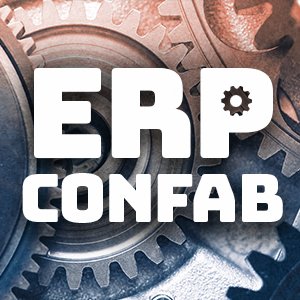SAP S/4HANA implementation partners on cloud vs. on-premises

SAP practice leaders at Deloitte, EY and IBM share their advice on whether, when and how to move to S/4HANA, what the Rise with SAP service really does and how cloud versions differ.
Deciding whether to move daily business processes to S/4HANA, SAP's newest ERP platform, can be a monumental task, one fraught with complexity, uncertainty and even fear.
But there can also be a sense of excitement that S/4HANA, with its embedded in-memory analytics and leading-edge technologies like AI and IoT, will be the vehicle for a true digital transformation.
 Chip Kleinheksel
Chip Kleinheksel
In any case, there are many complex factors to consider. For starters, the multi-tenant SaaS version, S/4HANA Cloud, differs in important ways from the on-premises and private cloud versions. Moreover, the vendor's 2027 deadline for migrating to S/4HANA and the sunsetting in 2030 of support for its predecessor, Business Suite, puts even more pressure on organizations to choose the right version of S/4HANA to gain its considerable benefits without disrupting the business.
To guide them through the process, organizations often turn to SAP S/4HANA implementation partners. For this podcast, I talked to the leaders of the SAP or S/4HANA practices at three of the largest system integrators with longstanding partnerships with SAP: Chip Kleinheksel, principal and global SAP CTO at Deloitte Consulting; Jesse Rothermel, SAP transformation lead at EY Americas (previously called Ernst & Young); and Keith Costello, general manager for global SAP business at IBM.
Insights from SAP S/4HANA implementation partners
Several major takeaways surfaced from talking at length to people who live and breathe S/4HANA implementation. Some were surprising even to someone who has followed S/4HANA from its inception.
One important insight involved Rise with SAP, the subscription service SAP launched a year ago to ease companies' transition from on-premises ERP to S/4HANA that runs on a public-cloud hyperscaler such as Amazon Web Services or Microsoft Azure.
 Jesse Rothermel
Jesse Rothermel
The vendor pitches Rise with SAP as an on-ramp to S/4HANA Cloud, but Kleinheksel and Rothermel said the offering typically appeals to clients who want the data privacy and security benefits of private cloud. Rise with SAP gives them a near equivalent: a single-tenant SaaS instance of S/4HANA, which means the software code and data are theirs alone -- practically the opposite of the enforced sharing of multi-tenant SaaS.
 Keith Costello
Keith Costello
Less surprising was the confirmation by the three experts that the on-premises version of S/4HANA continues to offer more ERP modules and is more feature-rich than S/4HANA Cloud, especially for specialized functions such as manufacturing and logistics. It's perhaps the biggest reason companies with highly customized on-premises SAP ERP systems aren't ready to move to the more streamlined and generic S/4HANA Cloud.
It's also why many SAP customers prefer the halfway measure of one of the "cloud" versions that runs the same codebase as on-premises S/4HANA, such as S/4HANA Any Premise. In essence, they get infrastructure as a service that provides the flexibility, convenience and savings of cloud computing while still running the more fully functional on-premises version. Nonetheless, to do that, they have to make the leap from their old ERP to S/4HANA.
"S/4HANA does things differently than the older versions of SAP," Costello said. "It's taken functions and processes and consolidated a lot of them. In fact, the data model's different."
The expert consultants also helped to explain the continued popularity of moving first to Central Finance, the first ERP module made available on S/4HANA. Accounting and financial reporting and analysis tend to be generic (much of that sameness is enforced by law) and organizations don't see them as competitive differentiators. So it's easier to only move financials to S/4HANA while leaving the customized manufacturing and product-development applications on premises.
Other SAP S/4HANA implementation issues discussed include the following:
- common challenges of S/4HANA migration
- the respective roles of implementation partners, their clients and SAP
- best practices
To hear the podcast, click on the link above.